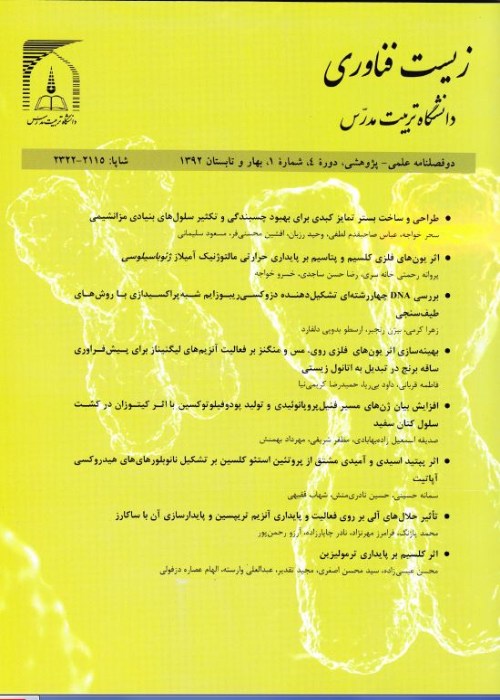Synthesis, Characterization and Optimization of Self-Assembled Nanoparticles of Polyethylenglycol-Polycaprolactone Diblock Copolymer as the Efficient Nanocarriers for in Vitro Curcumin Delivery into Breast Cancer Cells of MCF-7 Cell Line.
Nanotechnology is currently one of the promising approaches for cancer diagnosis and treatment. Among different materials that so far have been used for drug delivery, the systems based on the polymers are more attractive, due to their simple manufacturing processes and diversity in polymer functionalization and modification methods. Polyethyleneglycol (PEG) and polycaprolactone (PCL) are two FDA approved and biocompatible synthetic polymers which frequently have been used in the pharmaceutical industry. Apart from the delivery carriers, the active ingredient’s safety is also very challenging in case of cancer therapeutics. The chemotherapy agent’s side effects are one of the main patients’ death in many cancers. The naturally extracted curcumin is one of the most interesting anti-cancer agents with a proven selective effect on the cancerous cells which results in minimum side effects during the treatment. Curcumin has been tested as the main agent or in combination therapy of various cancers. Numerous studies have shown the safety and efficacy of curcumin at different administered doses. However, the main obstacle in the application of curcumin is its low aqueous solubility and low and variable bioavailability after administration. For that, in this study, we tried to enhance the solubility of curcumin using a novel diblock copolymer of PEG-PCL nanoparticulate system. At first, the PEG-PCL copolymer was synthesized and then characterized by GPC, FTIR, and H NMR methods. After that, curcumin was loaded in the micellar structure of PEG-PCL at an optimized encapsulation approach and then the toxicity of the prepared nanoparticles was assessed in MCF-7 cell culture. The results showed that the prepared nanoparticles could efficiently entrap the hydrophobic molecules of curcumin, improve its solubility and increase in vitro activity against cancer cell line.
- حق عضویت دریافتی صرف حمایت از نشریات عضو و نگهداری، تکمیل و توسعه مگیران میشود.
- پرداخت حق اشتراک و دانلود مقالات اجازه بازنشر آن در سایر رسانههای چاپی و دیجیتال را به کاربر نمیدهد.


